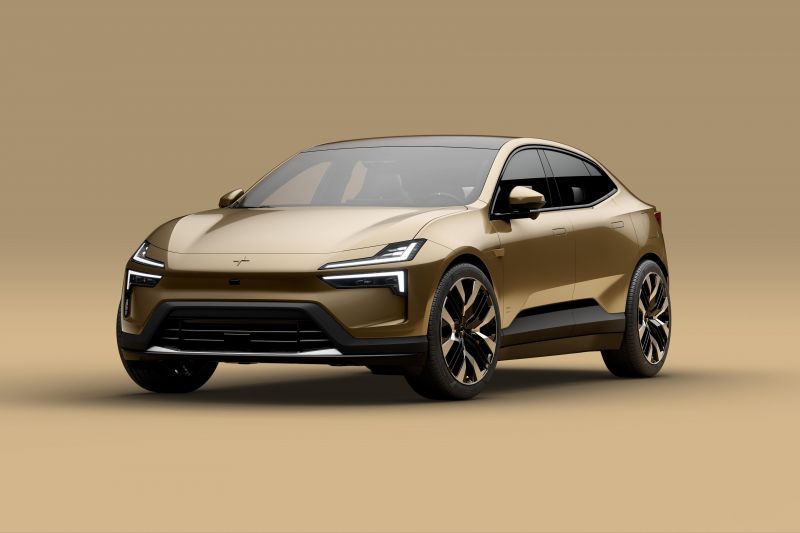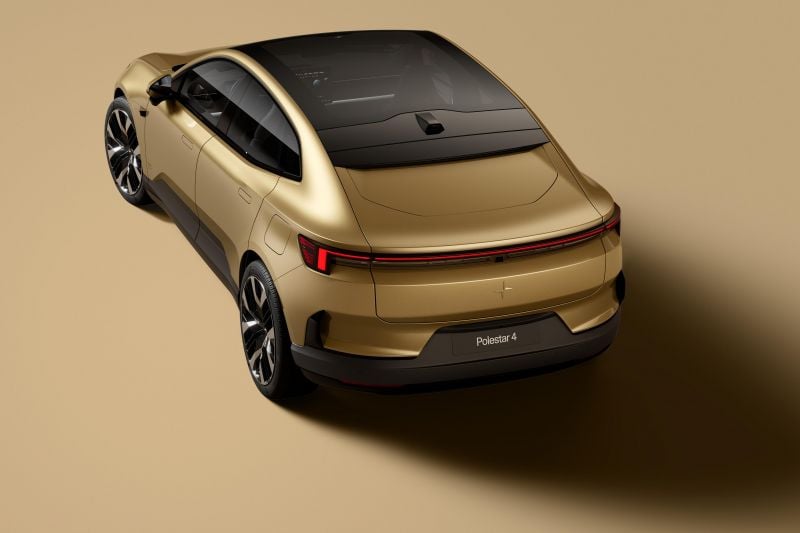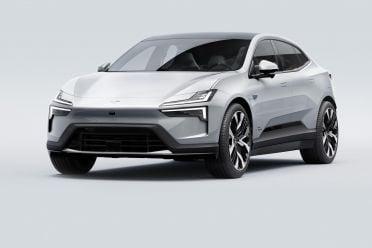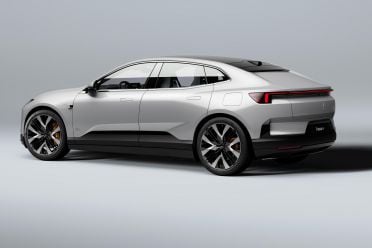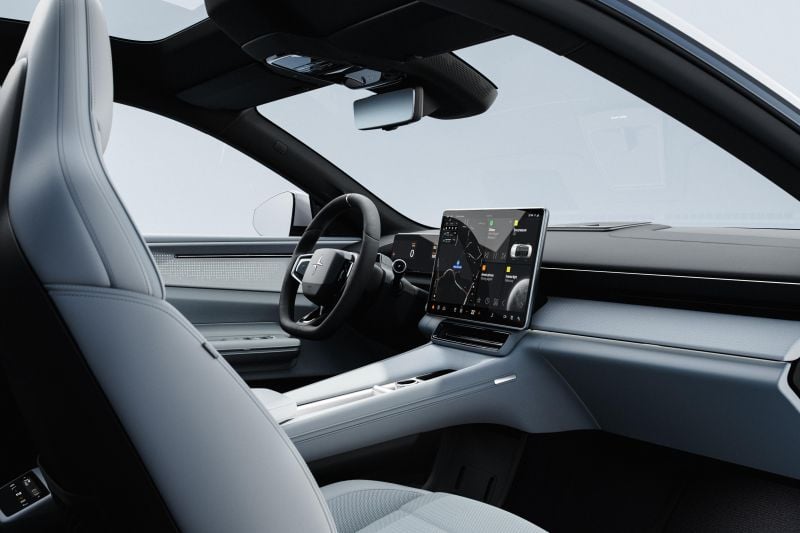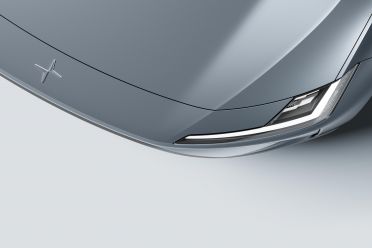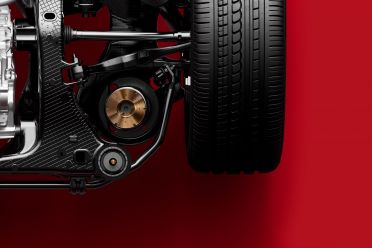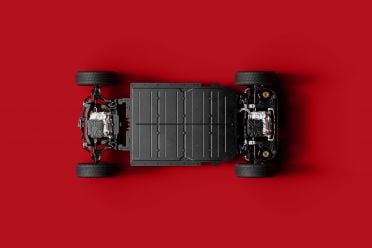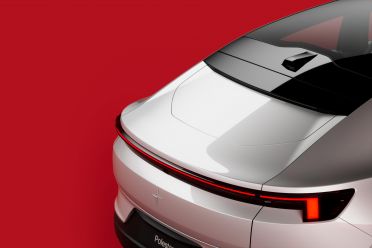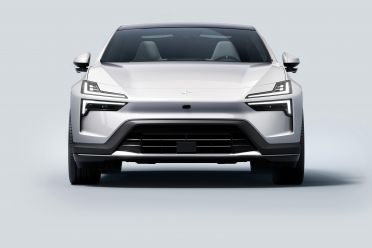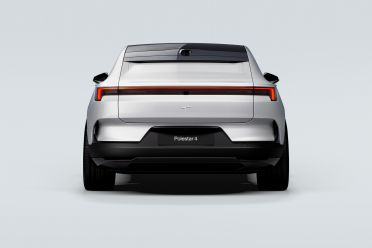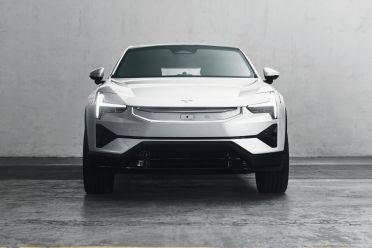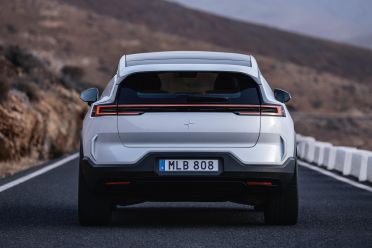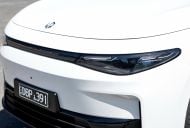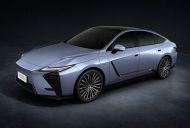What comes after the Polestar 1, 2, and 3? The Polestar 4, of course.
Revealed today at the Shanghai motor show, the 4 is slightly smaller than the 3 revealed in 2022.
Launch timing for Australia hasn’t been confirmed; Polestar says launch details for global markets will be confirmed in 2024.
Rather than a practical wagon profile, it has a sloping coupe tailgate that gives it a sportier look. Where the 3 is targeted at the Porsche Cayenne, the 4 is aimed at the smaller Macan.
Oh, and there’s no rear window. Polestar has closed off the bootlid entirely, and offers rear visibility through a roof-mounted camera that offers a real-time feed to a screen in the cabin for “a far wider field of view than what can be experienced in most modern cars”.
It has a smaller body, less ground clearance, and actually rides on different underpinnings – where the 3 shares its SPA bones with the Volvo EX90, the 4 is built using the SEA architecture rolling out to brands under the Geely umbrella.
The base rear-drive model rides on passive dampers and coil springs, the range-topper gets adaptive dampers.
It measures up at 4839mm long, 2139mm wide (incl. mirrors) and 1544mm tall, with a 2999mm wheelbase, and will be offered in two flavours.
The first is the Long range Single motor, which mates a 200kW/343Nm motor on the rear axle with a 94kWh (usable) lithium-ion battery pack for a claimed range of “up to 600km”.
The second is the Long range Dual motor, which adds a motor on the front to the mix for 400kW of power, 686Nm of torque, and “up to 560km” of range. Owners can choose between Range and Performance drive modes based on their mood, and the 100km/h sprint takes a claimed 3.8 seconds.
Both models can recharged at up to 200kW when hooked up to a DC public fast charger, good for a five to 80 per cent charge in 32 minutes. The car is capable of 22kW AC charging, along with vehicle-to-load.
Kerb weight is between 2232 and 2351kg, and both models have 15L of storage under the bonnet, and a further 500L in the boot.
The rear-wheel drive model can tow 1500kg, while the more powerful dual-motor model will tow 2000kg.
Inside, the Polestar 4 features a pared-back approach to cabin design – as we’ve come to expect from Polestar and Volvo.
The dashboard is dominated by a 15.4-inch touchscreen infotainment system running Google Android Automotive, capable of receiving over-the-air updates. There’s also a 10.7-inch instrument binnacle in front of the driver, a head-up display with a 14.7-inch projection area, and a display for rear occupants to control their climate.
You’re even able to run the HUD in Snow Mode, which changes all the text to yellow so you can see it on snow-covered Swedish (or Chinese) roads. Although Google Maps, Google Assistant, and the Google Play application store are included, you’re also able to use Apple CarPlay.
A range of environmentally conscious materials are used inside, and there are new colour combinations on offer for Polestar. Atop the recycled PET-based trim, you’re able to opt for “animal welfare-secured” Nappa leather for the seats.
Safety has been at the core of the Polestar story since day one, given its links to Volvo, but you’ll still need to pay extra to unlock the car’s full driver assistance potential.
A total of 12 cameras, one radar, and 12 ultrasonic sensors are fitted, including a driver monitoring camera. Full specifications will be published closer to launch, but Polestar has confirmed a Pilot Pack will be offered with hands-free lane changes – tap the indicator with adaptive cruise control activated, and it’ll slot into a gap in the next lane.
Also available are Plus and Plus Pro packages, a Nappa Pack, and a Performance Pack which brings 22-inch wheels, unique chassis tuning, four-piston ventilated Brembo brakes, and plenty of gold highlights.
A panoramic glass roof will feature, capable of acting like a fully transparent sunroof, or of clouding over to darken up the cabin on hot days.
Pricing will kick off at the equivalent of around $100,000 in Europe.





